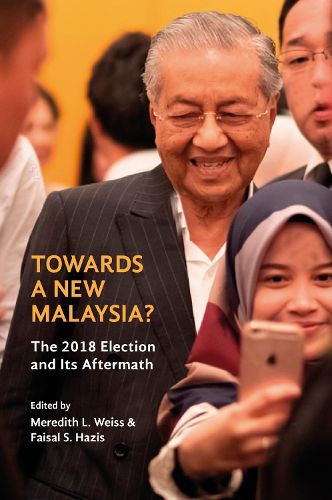Readings Newsletter
Become a Readings Member to make your shopping experience even easier.
Sign in or sign up for free!
You’re not far away from qualifying for FREE standard shipping within Australia
You’ve qualified for FREE standard shipping within Australia
The cart is loading…






Malaysia’s 2018 election (GE14) brought down a ruling party in power since independence in 1957. This book tells the full story of this historic election, combining a sharp analysis of the voting data with consideration of the key issues, campaign strategies, and mobilization efforts that played out during the election period in April and May of 2018. This analysis is then used to bring fresh ideas and perspectives to bear on the core debates about Malaysian political ideas, identities and behaviors, debates that continue to shape the country’s destiny.
However optimistic many Malaysians may be for the possibility of a more representative, accountable, participatory, and equitable polity, the authors do not see GE14 as a clear harbinger of full-on liberalization in Malaysia. While the political aftermath of the election continues to play out, the authors provide a clarion call for deeper, more critical, more comparative research on Malaysia’s politics. They complicate well-known angles on and elevate too-little-studied dimensions of Malaysian politics, and suggest agendas for empirically interesting, theoretically relevant further research. They also point to the broader insights Malaysia’s experience provides for the study of elections and political change in one-party dominant states around the world.
$9.00 standard shipping within Australia
FREE standard shipping within Australia for orders over $100.00
Express & International shipping calculated at checkout
Malaysia’s 2018 election (GE14) brought down a ruling party in power since independence in 1957. This book tells the full story of this historic election, combining a sharp analysis of the voting data with consideration of the key issues, campaign strategies, and mobilization efforts that played out during the election period in April and May of 2018. This analysis is then used to bring fresh ideas and perspectives to bear on the core debates about Malaysian political ideas, identities and behaviors, debates that continue to shape the country’s destiny.
However optimistic many Malaysians may be for the possibility of a more representative, accountable, participatory, and equitable polity, the authors do not see GE14 as a clear harbinger of full-on liberalization in Malaysia. While the political aftermath of the election continues to play out, the authors provide a clarion call for deeper, more critical, more comparative research on Malaysia’s politics. They complicate well-known angles on and elevate too-little-studied dimensions of Malaysian politics, and suggest agendas for empirically interesting, theoretically relevant further research. They also point to the broader insights Malaysia’s experience provides for the study of elections and political change in one-party dominant states around the world.